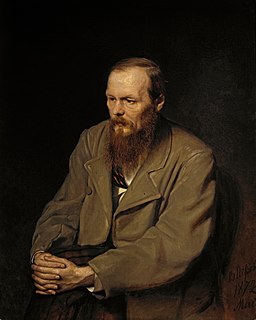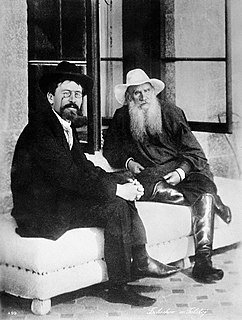History
Academia was founded as a private publishing house at the Petrograd University. It came under the control of Soviet State Institute of Arts’ History shortly thereafter and was reformed to a state publishing joint-stock company. The 1922 edition of The Works of Plato was the first to bear Academia’s logo. There are four known alterations of Academia logo (all by Grigory Lyubarsky), which differ by house’s name placement. In 1929 the publishing house was transferred from Leningrad to Moscow, and the woodcut artists were employed (Vladimir Favorsky, Andrey Goncharov, Aleksei Kravchenko, Mikhail Pikov, Nikolai Piskarev, Mikhail Polyakov, and Georgy Yecheistov).
Academia failed to finalize the publication of some books. Several books, such as Michel de Montaigne's Essais , Demosthenes' Orations, Plutarch's Parallel Lives , Tacitus' Annals or the Divine Comedy , remained unpublished. Additionally, the issuing of the declared 5,300 copies (1935, 492 pages) of Demons by Fyodor Dostoyevsky was cancelled. Only a few examples, that turned a bibliophilic rarity, are known. [3] The last head of Academia was Lev Kamenev. [4] In 1938–1939 Goslitizdat issued several books, marked with "the book was compiled by the publishing house Academia" ("книга подготовлена издательством "Academia").

Fyodor Mikhailovich Dostoevsky, sometimes transliterated as Dostoyevsky, was a Russian novelist, short story writer, essayist, and journalist. Dostoevsky's literary works explore the human condition in the troubled political, social, and spiritual atmospheres of 19th-century Russia, and engage with a variety of philosophical and religious themes. His most acclaimed novels include Crime and Punishment (1866), The Idiot (1869), Demons (1872), and The Brothers Karamazov (1880). His 1864 novella, Notes from Underground, is considered to be one of the first works of existentialist literature. Numerous literary critics rate him as one of the greatest novelists in all of world literature, as many of his works are considered highly influential masterpieces.

Russian literature refers to the literature of Russia and its émigrés and to Russian-language literature. The roots of Russian literature can be traced to the Middle Ages, when epics and chronicles in Old East Slavic were composed. By the Age of Enlightenment, literature had grown in importance, and from the early 1830s, Russian literature underwent an astounding golden age in poetry, prose and drama. Romanticism permitted a flowering of poetic talent: Vasily Zhukovsky and later his protégé Alexander Pushkin came to the fore. Prose was flourishing as well. Mikhail Lermontov was one of the most important poets and novelists. The first great Russian novelist was Nikolai Gogol. Then came Ivan Turgenev, who mastered both short stories and novels. Fyodor Dostoevsky and Leo Tolstoy soon became internationally renowned. Other important figures of Russian realism were Ivan Goncharov, Mikhail Saltykov-Shchedrin and Nikolai Leskov. In the second half of the century Anton Chekhov excelled in short stories and became a leading dramatist. The beginning of the 20th century ranks as the Silver Age of Russian poetry. The poets most often associated with the "Silver Age" are Konstantin Balmont, Valery Bryusov, Alexander Blok, Anna Akhmatova, Nikolay Gumilyov, Sergei Yesenin, Vladimir Mayakovsky, and Marina Tsvetaeva. This era produced some first-rate novelists and short-story writers, such as Aleksandr Kuprin, Nobel Prize winner Ivan Bunin, Leonid Andreyev, Fyodor Sologub, Yevgeny Zamyatin, Alexander Belyaev, Andrei Bely and Maxim Gorky.

Nikolai Vasilyevich Gogol was a Russian novelist, short story writer and playwright of Ukrainian origin.

Nikolay Alexeyevich Nekrasov was a Russian poet, writer, critic and publisher, whose deeply compassionate poems about peasant Russia made him the hero of liberal and radical circles of Russian intelligentsia, as represented by Vissarion Belinsky, Nikolay Chernyshevsky and Fyodor Dostoyevsky. He is credited with introducing into Russian poetry ternary meters and the technique of dramatic monologue. As the editor of several literary journals, notably Sovremennik, Nekrasov was also singularly successful and influential.

The Moscow Art Theatre was a theatre company in Moscow. It was founded in 1898 by the seminal Russian theatre practitioner Konstantin Stanislavski, together with the playwright and director Vladimir Nemirovich-Danchenko. It was conceived as a venue for naturalistic theatre, in contrast to the melodramas that were Russia's dominant form of theatre at the time. The theatre, the first to regularly put on shows implementing Stanislavski's system, proved hugely influential in the acting world and in the development of modern American theatre and drama.

Mikhail Mikhailovich Dostoevsky was a Russian short story writer, publisher, literary critic and the elder brother of Fyodor Dostoevsky. They were less than a year apart in age and spent their childhood together.

Otechestvennye Zapiski was a Russian literary magazine published in Saint Petersburg on a monthly basis between 1818 and 1884. The journal served liberal-minded readers known as the intelligentsia. Such major novels as Ivan Goncharov's Oblomov (1859), Fyodor Dostoyevsky's The Double (1846) and The Adolescent (1875) and Mikhail Saltykov-Shchedrin's The Golovlyov Family (1880) made their first appearance in Otechestvennye Zapiski.
The year 1960 was marked by many events that left an imprint on the history of Soviet and Russian Fine Arts.

Epoch was a Russian literary magazine published in 1864-65 by Fyodor Dostoyevsky and his brother Mikhail.
A Protégée of the Mistress is a play by Alexander Ostrovsky, first published in the No.1, January 1859 issue of Biblioteka Dlya Chteniya. Refused the permission to be produced at the Imperial Theatres in October 1859, it premiered in Maly Theatre, Moscow, only on October 21, 1863.

The themes in the writings of Russian writer Fyodor Dostoevsky, which consist of novels, novellas, short stories, essays, epistolary novels, poetry, spy fiction and suspense, include suicide, poverty, human manipulation, and morality. Dostoevsky was deeply Eastern Orthodox and religious themes are found throughout his works, especially in those written after his release from prison in 1854. His early works emphasised realism and naturalism, as well as social issues such as the differences between the poor and the rich. Influences from other writers are evident, especially in his early works, leading to accusations of plagiarism but his style gradually developed over his career. Elements of gothic fiction, romanticism, and satire can be found in his writings. Dostoyevsky was "an explorer of ideas", greatly affected by the sociopolitical events which occurred during his lifetime. After his release from prison his writing style moved away from what Apollon Grigoryev called the "sentimental naturalism" of his earlier works and became more concerned with the dramatization of psychological and philosophical themes.

The fine art of Leningrad is an important component of Russian Soviet art—in the opinion of the art historians Vladimir Gusev and Vladimir Leniashin, "one of its most powerful currents". This widely used term embraces the creative lives and the achievements of several generations of Leningrad painters, sculptors, graphic artists and creators of decorative and applied art from 1917 to the early 1990s.

Zinovii Isaevich Grzhebin (Russian: Зиновий Исаевич Гржебин was a Russian publisher and caricature illustrator. He represented more than 20% of the publishing market in Russia in the early 1910s and made a significant impact on development of the Russian book publishing industry.

The House of the Dead is an 1932 Russian film directed by Vasili Fyodorov from a script by Viktor Shklovsky, based on the novel of the same name by Fyodor Dostoevsky. Shklovsky changed the name of the script several times, eventually calling it The House of the Dead. The film stars Nikolay Khmelyov, Nikolay Podgorny, Nikolai Vitovtov and Mikhail Zharov.
Chuvash publishing company is the Republican state unitary enterprise producing fiction, children's, educational, political etc. literature in Chuvash, Russian, English. Provides educational institutions of the Chuvash Republic and the Chuvash Diaspora with educational and methodical literature, completes book funds of libraries, is engaged in trade in book production and industrial goods. Since 1996 the publishing House is a member of the Association of book publishers of the Russian Federation.

Mark Isaakovich Prudkin was a Soviet and Russian actor of theater and cinema. People's Artist of the USSR (1961). Hero of Socialist Labor (1989). Laureate of three Stalin Prizes.












